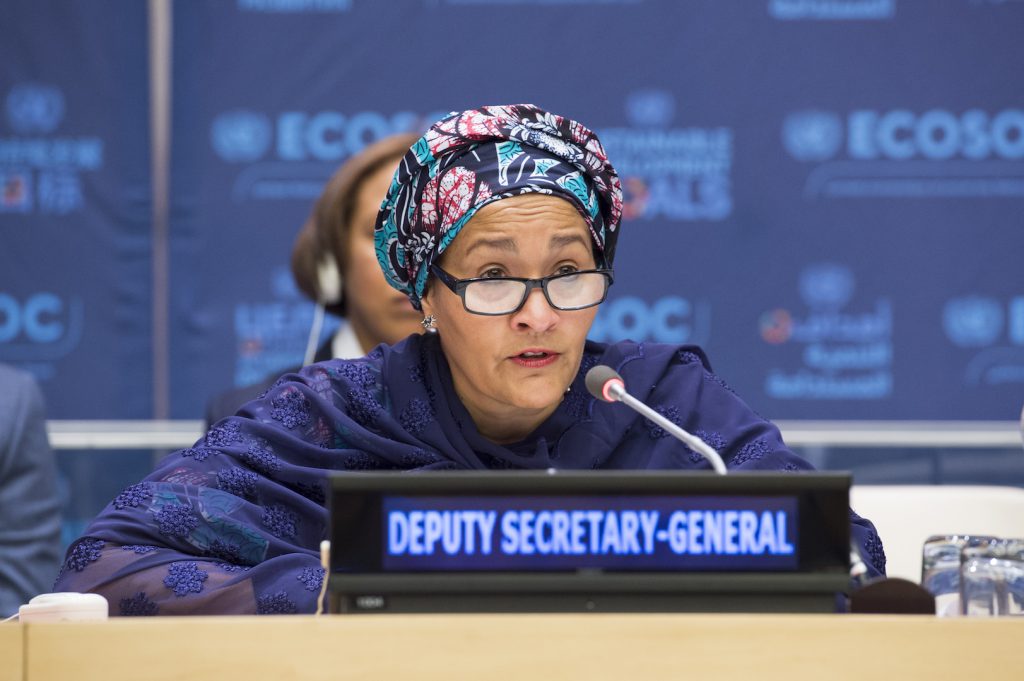United Nations: UN Deputy Secretary-General Amina Mohammed invoked Indian emperor Ashoka’s message of harmonious relations between people of all religions as she underscored the importance of diversity and inclusion amid growing intolerance across the world.
“The tension between unity and pluralism, between the whole and its constituent parts, has been debated by thinkers and philosophers for thousands of years. Two millennia ago, the Indian emperor ‘Ashoka the Great’ called for harmonious relations between people of all religions and respect for each other’s scriptures,” Mohammed said in her remarks at the Global Centre for Pluralism in Lisbon June 11.
Ashoka, also known as ‘Ashoka the Great’, was an Indian emperor of the Maurya Dynasty which who ruled almost the entire Indian subcontinent from 268 BC to 232 BC.
UN Deputy Secretary-General voiced concern over the growing intolerance and discrimination across countries and stressed that there is need for a fundamental reordering of our priorities and a reorganisation of our economic, political and social systems, if we are to reap the benefits of inclusion and save ourselves and our planet from further inhumanity and degradation.
“We have created a world in which there is growing ethno-nationalism, intolerance, discrimination and violence targeting women, minorities, migrants, refugees and anyone perceived to be different or other,” she said, adding civic space is shrinking; basic rights are under attack; activists and journalists are targeted; misinformation campaigns and hate speech spread like wildfire on social media,” she said.
Mohammed also termed the rising attacks on places of worship as the ‘most egregious’ example of lack of respect for each other and for the common humanity, citing the ‘horrific attacks’ on mosques in New Zealand, churches in Sri Lanka and synagogues in the United States.
“Record numbers of people are on the move around the world, fleeing conflict, drought, poverty and lack of opportunity. At the same time, refugees and migrants are attacked both physically and rhetorically with false narratives that link them with terrorism and scapegoat them for many of society’s ills,” she said.
Mohammed also lamented that millions of women and girls face insecurity and violations of their human rights every day as violence is used to enforce patriarchy and gender inequality and police women’s role in society.
“Excluding half our population not only affects our mothers, daughters and sisters; it affects every one of us and distorts our societies and economic systems,” she said.
Calling for a collective global effort to defeat the winds of intolerance, she said that the need for regional and global institutions is now even more and the international community needed to make the radical shift needed to achieve the 2030 Development Agenda — a shift in mindsets away from accumulation by a few and exclusion of the many, to a paradigm based in interdependence with each other, and with our environment.
“A shift in policy solutions that are based on mutual gains rather than zero-sum thinking, and from a definition of security that is based on an ever-increasing stock of weapons and stronger borders, to one based on resilient societies and mutual respect for each other and our planet”, she said.
“They are a conscious effort to build and replenish the world’s democratic infrastructure, our relationship and obligation to each other and social capital,” Mohammed added.
PTI
